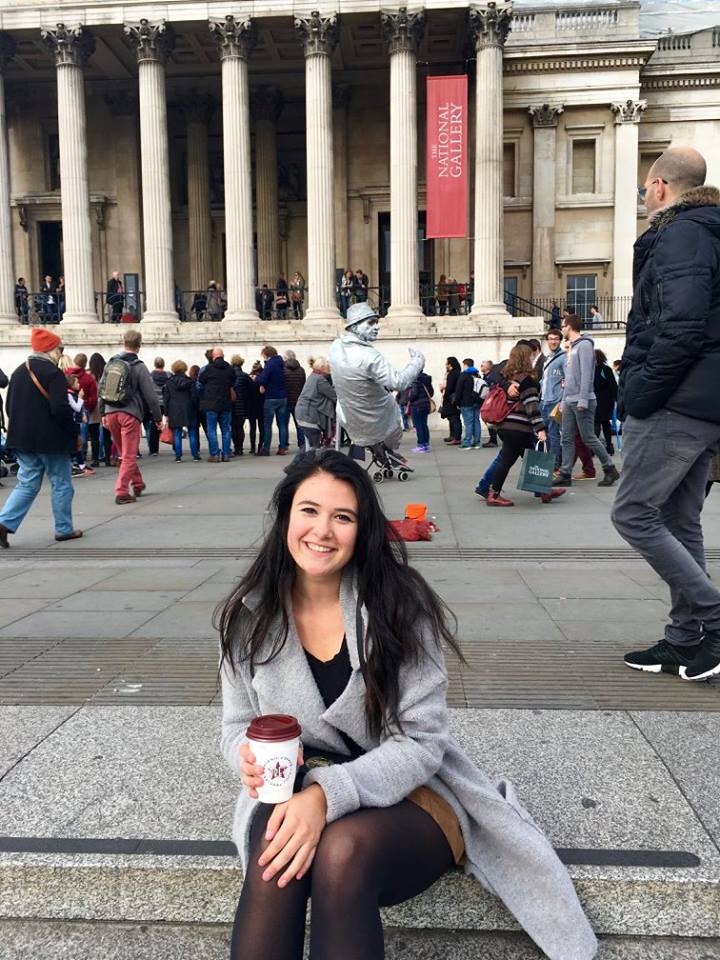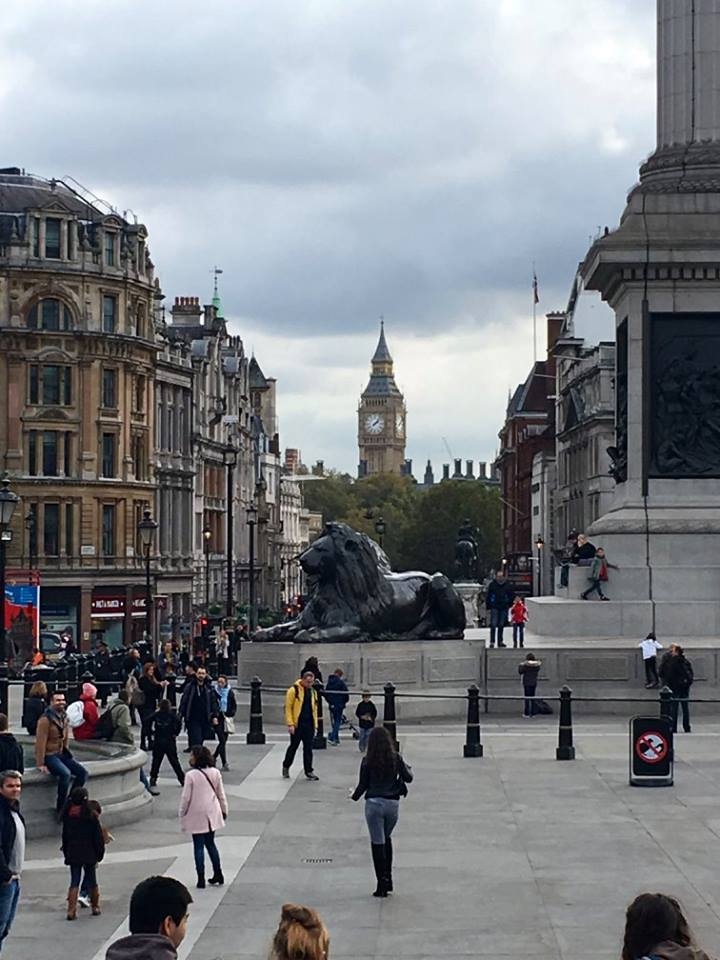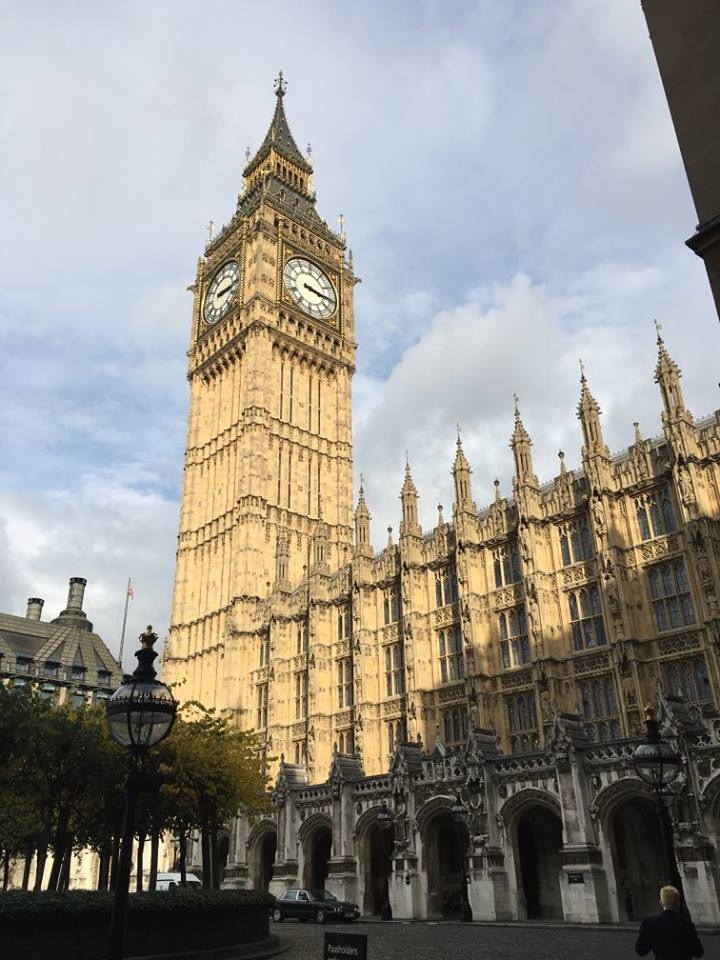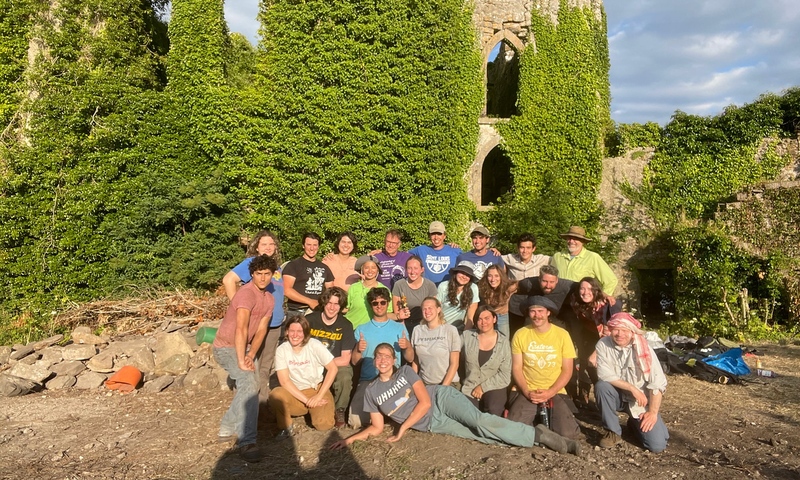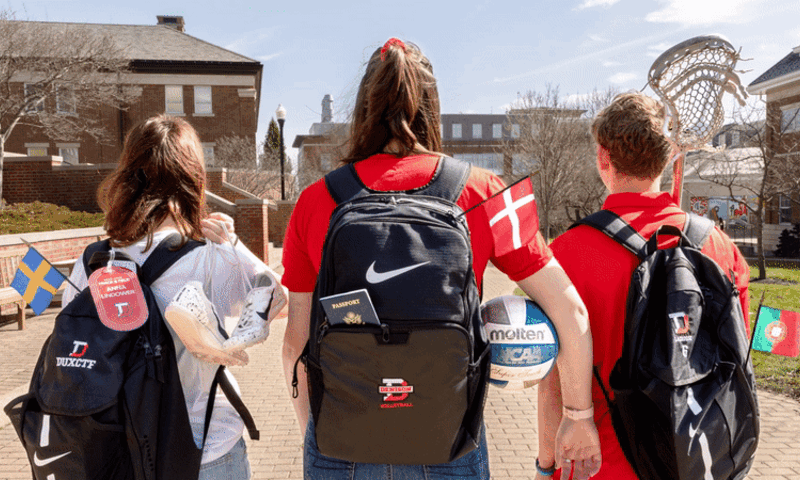In the summer of 2017, political science and creative writing double major Rachel Epstein undertook an off-campus summer research experience under the auspices of the Lisska Center for Scholarly Engagement. Her story follows.
Denison is home to me, I have roots here. Yet Denison asks us to go beyond our roots so that we will see ourselves as global citizens. Some students choose to study abroad to fulfill this need, some take exciting internships across America. I chose to do it through research.
This past summer, I was awarded an Off-Campus Summer Scholar grant through the Lisska Center for Scholarly Engagement to complete research overseas in London. Originally, I assumed I’d commit to 10 weeks of research in Granville, living on campus, doing more reading than human eyes should be able to, and developing a writing sample for graduate school applications. Certainly, that was the simplest, and most comfortable, option. To stay within the boundaries of Denison, taking the same route between my apartment and the political science office every day for the entire summer.
My initial plan was to analyze British education policy over the past 20 years and apply it to a theoretical discussion of how such policies influence the identities of racial and ethnic minority children. But after I ran my plan past my academic advisor, English professor and Lisska Center Director Dr. Margot Singer, her cross-disciplinary suggestions led me down a different path.
At the end of the meeting, she said “wait a minute, what about…” and I knew my plans were about to change. Dr. Singer suggested I take a look at a new summer scholar program the Lisska Center recently created. Only in its second year, the off-campus summer scholar program looks and speaks like its campus-based cousin, but this new version supports students whose research includes an international element. She told me I’d need a secondary advisor on location, a separate budget application, and justification for why the international travel component was necessary.
“Without the support of those who pushed my intellectual curiosity beyond Granville, I doubt I would have felt so confident to jump across the pond for so large a project.”
So I set to work sending my grant proposal off to over 40 professors in the UK. As the slow trickle of rejections filtered into my inbox, I kicked myself for even trying. But even via email, I was leaving the small pond of Denison faculty who supported and cultivated my love of learning since I stepped on campus four years ago. Suddenly, my inbox held replies from England to the effect of “no, not my area,” “sorry, I already have too many PhD students,” or my personal favorite, “this project just won’t work.”
Admittedly, I was doing a bit of disciplinary backstabbing. To make the project internationally significant, I turned what was a political theory analysis of policy into an ethnographic phenomenology, combining both empirical and normative methods of study. Layman’s terms? I broke the rules, mushing journalistic narratives, political science, philosophy, and anthropology into one big academic conglomerate.
In any application process, whether it be for employment, graduate school, or an audition, you only need one “yes.” Thankfully, a lecturer at the School of Oriental and African Studies (SOAS) in London took a chance on being mine.
Having two incredibly considerate, passionate, and committed advisors fostered the confidence I needed to do this kind of work. I was even able to coin my own term, ‘neoliberal racialism’ that served as the backbone of my thesis. Overall, I discovered that England suffers from a racial crisis in education in both policy and practice, therefore disenfranchising minority students through colorblind deregulation.
This summer, I stretched my boundaries to encompass both sides of the Atlantic, and I created a solid base of work for my graduate school applications. Without the support of those who pushed my intellectual curiosity beyond Granville, I doubt I would have felt so confident to jump across the pond for so large a project.
Thanks to the staff at the Lisska Center, who helped me find the balance between hand holding and independence, and Dr. Pool, my incredible political science advisor who read my work more times than I’d care to wonder, my Denison roots grew even stronger overseas.
Global citizenry is tricky concept. Borders and boundaries (something we discuss a lot in political science) certainly help define our identities as citizens of countries, states, and communities—but rarely the world. Denison’s commitment to helping students discover for themselves what it means to be a global citizen builds individuals who are passionate about their communities, no matter where in the world that community is

